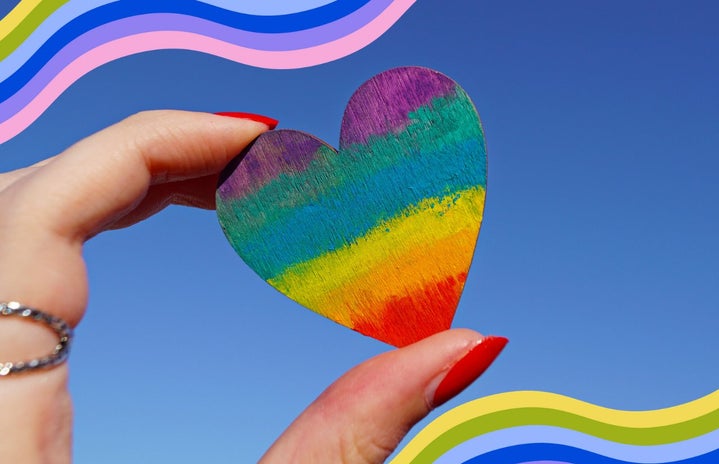Throughout my life, I have been the dictionary definition of a “girly-girl.” I wear all-pink outfits, love wearing dresses with ribbons and full skirts, have long blonde hair and will never turn down a day at the spa. Imagine my surprise when I woke up one morning feeling unsettled in my body. Several months ago, I experienced gender dysphoria – the feeling of identifying with a different gender than you were assigned at birth – for the first time and have been experimenting with different pronouns and gender identities ever since. Over the last few months, I’ve learned that gender really can be fluid and that any and all gender identities are valid.
What is Gender Identity?
While most of us are now familiar with the concept of gender identity, it can be helpful to revisit the definition. Gender identity is defined by Oxford Languages as “an individual’s personal sense of having a particular gender.” This definition beautifully illustrates just how unique one’s gender identity can be. There can be as many gender identities as there are people in the world because each one is based on people’s own self-perception and understanding of themselves.
What About Gender Stereotypes?
What is most salient about the definition of gender identity is that it is personal. In other words, broad and sweeping generalizations like stereotypes should not apply. You are allowed to love stereotypically “girly” things and identify as male, non-binary or another identity. You can be a tomboy and identify as a woman. Your gender identity is multi-faceted, complex and does not need to be restricted by societal expectations.
How Do I Know If I Am Genderfluid?
This is a great question and one that more and more people are beginning to ask as gender identity becomes a more prevalent topic in the 21st century. Like any part of your identity, only you can discover your own gender identity, and it takes time and exploration to know if an identity label is right for you. Finding safe spaces to experiment with pronouns, seeking support and talking to others who may be questioning their identities are great places to start. This can be done through online forums, gender therapists, your school’s Rainbow Centre or any other inclusive space. Ultimately, gender can be fluid, and there is no pressure to label yourself now or in the future!
If You’ve Never Experienced These Feelings
Many people are cisgender, meaning that they identify with the gender they were assigned at birth (typically either boy or girl). If this identity fits for you, that’s great! Not everyone questions their gender identity, and your identity is completely valid as it is. However, if you have never experienced gender insecurity firsthand, learning about gender is all the more important when it comes to supporting your friends who do. Treating gender-questioning friends with love and open arms will help provide them with the support to discover this part of themselves, just as you have discovered your own. This can be done by offering a listening ear, using their preferred pronoun(s) and doing your own research on gender.
Gender and its myriad manifestations can be confusing to understand at first, but it is so worth taking the time to learn about. Whether you are questioning your own gender identity or are supporting a friend through their transition, approaching gender with a mindset of curiosity and acceptance is crucial for making discoveries about who you are. Right now, I identify as a woman, but I use both she and they pronouns. Most days I present myself as very feminine, but on days when I experience dysphoria, I choose a more stereotypically masculine look, as I find it best expresses how I identify at that moment. My gender is fluid, and that is okay because I am fluid as a person too! Through acceptance, support and compassion – both from others as well as within myself – I have learned that any and all gender identities are real, valid and worthy.
Sources:



